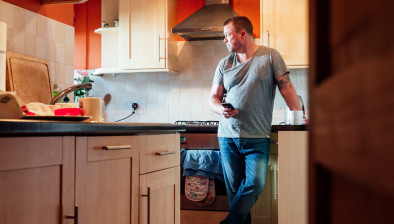England: ‘Forgotten homeless’ being denied access to housing

Thousands of people in England are “trapped in a cycle of homelessness” due to a lack of affordable and accessible housing, homelessness charity Crisis has said.
Its new research shows that 26,000 single people face homelessness on any given night in England, most of whom have very few support needs and just can’t find a home.
The Moving On: Improving access for single homeless people in England report looks at the barriers to housing encountered by adults who typically fall outside the protection of the current homelessness legislation because they are deemed low priority.
It finds that this group’s access to social housing has been declining each year, and while many have no acute support needs, those living on the lowest incomes face significant challenges getting access to housing of any sort.
Unable to access social housing, private renting often becomes the only option available to this group of people, however, according to the report many landlords are reluctant to let properties to this group. Added to this, as the bite of recent welfare reforms take hold, such as reduced availability of Housing Benefit, many are unable to afford the up-front costs and rent demands of the few available options in the private rented sector.
In response, Crisis is calling on the Government to:
Jon Sparkes, chief executive at Crisis, said: “As the supply of social housing in England has shrunk, and fewer new tenants get access to social rented housing, the effect on single homeless people has been devastating. To make matter worse, restricted eligibility for social housing is trapping more and more people in a cycle of homelessness that they have no route out of, and this just isn’t right.
“We know that homelessness is not inevitable. With the right assistance, single homeless people can successfully secure a home to help them rebuild their lives. That’s why we’re calling on the Government to end the use of blanket restrictions that mean people who desperately need a home aren’t denied the help they need.
“We’re glad to see that the Government has announced an initiative to build more social housing – after a long-term lack of investment 4 – this announcement couldn’t have come soon enough. But we must make sure that enough of these homes are built to truly address our homelessness crisis, and to ensure people in the most vulnerable circumstances have access to them. We’re ready to work with the Government to make this work for everyone who needs it most.”
Key findings of the report:







